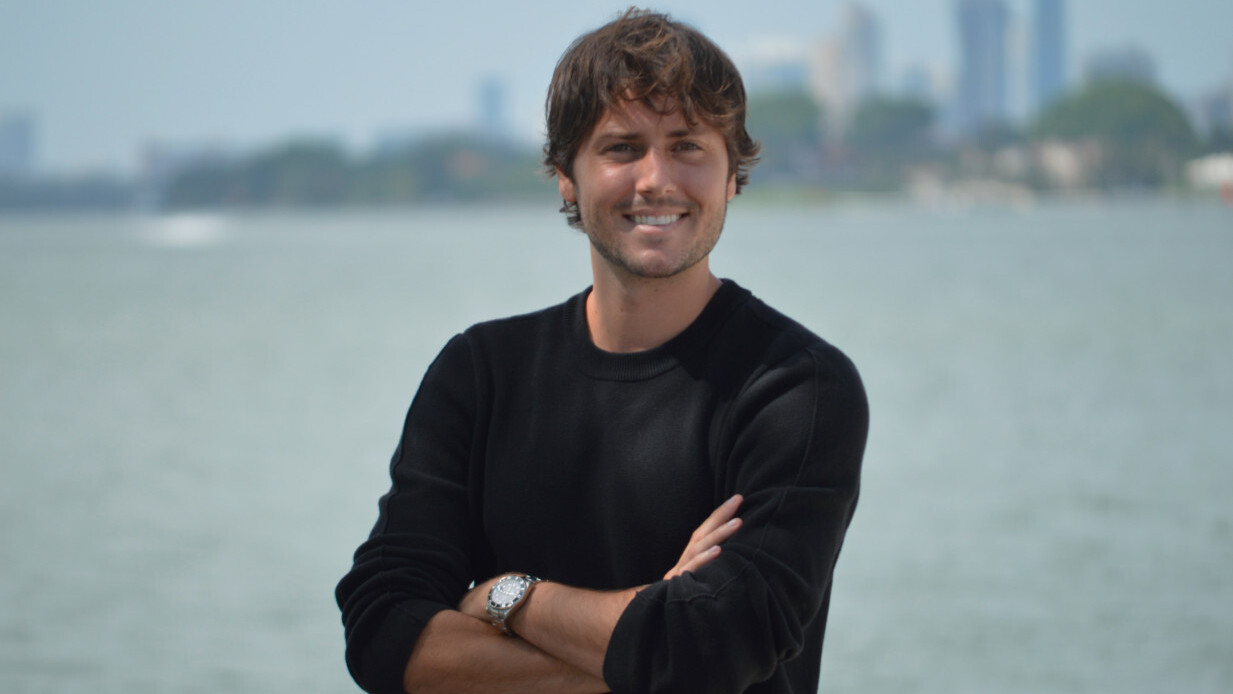
Roberto Linck may be most known for his time playing professional soccer, but since retiring he is focusing on his long-term legacy in business. During his few years off from soccer, he has already launched and acquired ten companies. Each of his ventures is distinctly different and allows him to tap into a wide range of business verticals.
As a 28-year-old serial entrepreneur, he has achieved more than most do during long careers. I sat down with him to hear more about his story and what lessons he has learned along the way. These are the biggest things he learned that have helped him grow his business empire in a relatively short period of time.
1. Find your unique advantages.
Due to his background in soccer, Linck has an understanding of the industry and a brand value in the sport that allow him to excel in the business of soccer. Of his ten companies, he owns a soccer team, two soccer software companies, a shoe factory, and a soccer league. Obviously, his unique advantage to execute soccer-related ventures and spot great ideas in that industry has helped him be successful with those five ventures.
For those looking to get into entrepreneurship or become serial entrepreneurs, he states it is important to figure out what unique advantages you have before starting out. If you know what your strengths are and what you are able to do better than anyone else, you can begin to execute on a number of ideas centered around that advantage. This lets you grow rapidly and add value without needing to slave away hoping success comes.
2. Leverage business synergies.
While launching a number of businesses, it best to pick businesses that can synergize with each other. This means that the businesses can either work with one another, such as owning both the factory and the retail chain, or businesses that can share resources, such as two retail chains negotiating for cheaper manufacturing in a larger group deal. Through his vast business holdings, it is clear he has worked diligently to find these synergies and leverage them for maximum value.
Besides his numerous soccer brands that can all benefit one another, he also a talent agency, video and event production, and model software which can help keep as much of the business logistics in-house. When looking for synergies think about vertical and horizontal synergies. Namely, how can you avoid paying someone to do work for you and how can you use your assets in other ways.
3. Always be building.
It is important to ensure you do not stretch yourself too thin and that what you begin, you can execute. That being said, complacency leads to failure down the line. “In order to combat against complacency, you need to always be building,” says Linck. He never likes to sit idle and so has worked to develop a diverse and aggressive portfolio of ventures to keep him busy and growing.
Balancing your expansion requires you to figure out what resources you need to execute. Linck is fortunate enough to have an all-star team and competent partners, such as Emerson Rosa and Roberto Carlos, working alongside him, so expansion is more doable through delegation of work. While looking at your own portfolio of companies and work, ensure you do not stretch yourself thin and over commit. Over promising and under delivering along with simply biting off more than you can chew are sure fire ways to set yourself up for failure.
4. Know where the future is going.
One of the things Linck pays the most attention to is where future trends are pointing. As new technologies and industries emerge, opportunities for vast fortunes open up. For instance, with the emergence of innovative software applications, Linck has been able to apply cutting-edge technology to a somewhat outdated system of soccer management.
Also, seeing the rise of influencer management, Linck was quick to enter that industry and begin signing some of the top Instagram influencers, including Claudia Alende. Understanding emerging trends is critical for evading disruption and constantly capturing value. Furthermore, he knows the long-term value of real estate and owns a soccer stadium and is building an 8-story commercial building.
Successful trend forecasting requires constant education according to Linck. He works diligently to always be aware of what is out there and learn about industries as they pop-up. Taking the steps to be well-read and exposed to a number of backgrounds can help in your pursuit of valuable business opportunities. As you explore the business world and see these chances to make a niche, begin to add them to your portfolio and this will lead to serial entrepreneurship.
With entrepreneurship as a goal of most young people today, Linck is an example of how to execute a variety of businesses well and quickly become a serial entrepreneur with a diverse portfolio. No matter what type of companies you are interested in or what your skill sets hold, the lessons of building businesses from Linck’s journey hold true for all aspiring entrepreneurs.
Get the TNW newsletter
Get the most important tech news in your inbox each week.





